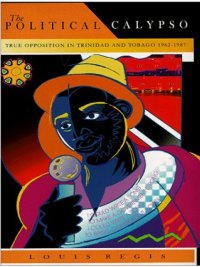The Political Calypso
True Opposition in Trinidad and Tobago 1962-1987
Essay by Louis Regis
Editions
 |
1998 | University of the West Indies Press | 978-0813015804 | English |
Summary
Calypso, a traditional form of music in the Caribbean, began in Trinidad and Tobago as a subtle protest against British rule. Influenced by African and native Caribbean rhythms, the calypso (along with Jamaican raggae) defines the music of the region. Louis Regis examines the evolution of the political calypso from 1962 to 1987, the period of Trinidad/Tobago's independence from Britain, and presents the text of lyrics from this popular folk-urban musical form. Following the songs and their themes chronologically from 1962 forward, Regis discovers the social history, cultural attitudes, and political commentary embedded within the music. He discusses the uneasy alliance between the performer and the politician, the political moods and postures emphasized in the songs, and the national identity of the calypso. Drawing upon voluminous research, Regis's study brings to light little-known and unrecorded songs. With a concluding chapter on the calypso's artistic and performance elements, it will appeal both to specialists in ethnomusicology and to general readers who enjoy the calypso.
Options
Latest books
© 2007-2026 United Reggae. All Rights Reserved. Reproduction in whole or in part is prohibited. Read about copyright
Terms of use | About us | Contact us | Authors | Newsletter | A-Z






